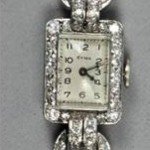Rules are everywhere in life. Rules, even the most banal and irritating ones, are there to keep us safe, and to keep order in the world. Without rules, humans would live in chaos. So it should come as no surprise that the rules we need to abide by dont end when we do; when we die, there are still rules that need to be followed.
Actually, its the deceased persons estate and what happens to it that is subject to the rules were talking about here. Specifically, the rules of intestacy which come into play when someone dies intestate. Dying intestate means that they have died without making a will, yet have property or belongings or money than need to be portioned out to family members (it can, in rarer circumstances, also mean that the deceased did make a will, but for whatever reason it has been ruled invalid). The rules of intestacy dictate who should get what. Its that simple, and that complicated.
Simple because there is nothing more to it than that when we drill down into it, and complicated because there are a number of different routes that can be followed to ensure that the entire estate is portioned out correctly, and they all depend on the numerous branches of a family tree. When someone dies intestate, probate can be a long winded and complicated affair.
The rules of intestacy state that the first person who needs to be considered is the spouse or civil partner of the deceased. This includes those who are separated (but not those who as divorced). The rules state that this person can inherit up to £250,000, as well as the various possessions that the deceased has accumulated in his or her lifetime.
If the estate is worth more than £250,000, or the spouse is deceased (or the couple divorced), then the deceaseds children are next in line. The estate is normally split equally between them. If there are no children, then the deceaseds parents come next. If no parents, then it is siblings, and once the siblings are dealt with it falls to nieces and nephews.
Assuming none of these people have survived or exist, then the search is widened to include grandparents, aunts, uncles, and cousins (of varying different strands).
If there really is no one to inherit (including half relations), everything that is left after funeral expenses will go to the Crown in a move known as bona vacantia?


















